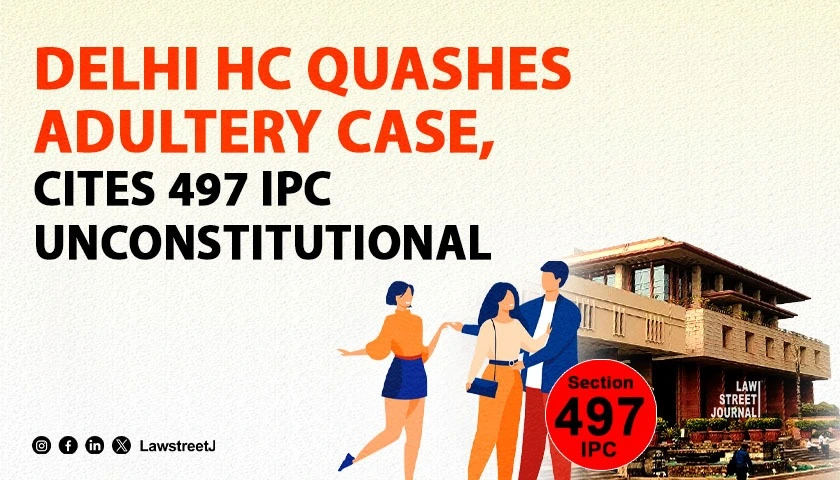New Delhi: The Delhi High Court has quashed proceedings in an adultery case, referring to the Supreme Court’s landmark judgment that declared Section 497 of the Indian Penal Code unconstitutional. The Court emphasized that this archaic provision no longer aligns with constitutional morality.
Justice Neena Bansal Krishna delivered the significant ruling on April 17, 2025, in response to a petition filed under Section 482 of the Code of Criminal Procedure.
The Court was hearing a criminal petition filed by Ashok Kumar Singh challenging the summoning order issued in a complaint by Inderjeet Singh. The Court noted, “A petition under Section 482 of the Code of Criminal Procedure, 1973, has been filed for quashing the order of the learned ASJ dated 28.04.2018, whereby the petitioner has been summoned under Section 497 of the Indian Penal Code, 1860.”
Addressing the specific allegations, the Court recorded: “According to the complainant, his wife, along with Ashok Kumar Singh, traveled to Lucknow on 21.01.2010 by flight, where they stayed together that night at Hotel Piccadilly as husband and wife and engaged in sexual intercourse without the complainant’s consent.”
The Court highlighted the constitutional infirmities in Section 497 IPC, stating: “The provision reflects a ‘tripartite labyrinth’, as described by Chief Justice Dipak Misra in the landmark judgment Joseph Shine v. Union of India, AIR 2018 SC 4898, wherein Section 497 IPC was held unconstitutional.”
In a pointed observation on the misogynistic underpinnings of the law, the Court remarked: “The notion of a woman being considered as the property of her husband, and its devastating consequences, are well documented in the Mahabharata, wherein Draupadi was staked in a game of dice by her own husband, Yudhishthira.”
Emphasizing the retrospective effect of the Supreme Court’s ruling, the Court cited: “This aspect has been discussed in Maj. Gen. A.S. Gauraya & Anr. v. S.N. Thakur, 1986 AIR 1440, wherein the Apex Court held that a declaration of law by the Supreme Court applies retrospectively to all pending proceedings.”
Accordingly, the Court directed that the complaint case filed by Respondent No. 2 under Section 497 IPC against the petitioner be quashed and that the petitioner be discharged.
Case Title: Ashok Kumar Singh v. The State & Anr.
Counsel: Mr. J.S. Rawat, Advocate appeared for the Petitioner; Ms. Meenakshi Dahiya, learned APP appeared for the State; Mr. Satish Kumar, Advocate appeared for Respondent No. 2.



![Delhi High Court Sets Aside Arbitral Tribunal's Award Against NHAI in Highway Project Delay Case [Read Judgment]](/secure/uploads/2023/07/lj_9605_23374c2e-392c-4491-a2fe-f2f12fc5272f.jpg)
![Delhi Court Rejects Stay Request in Defamation Case Against Rajasthan CM Ashok Gehlot [Read Order]](/secure/uploads/2023/08/lj_5208_80de1ddc-d76a-4f7f-b180-408e3ae14fb4.jpg)





